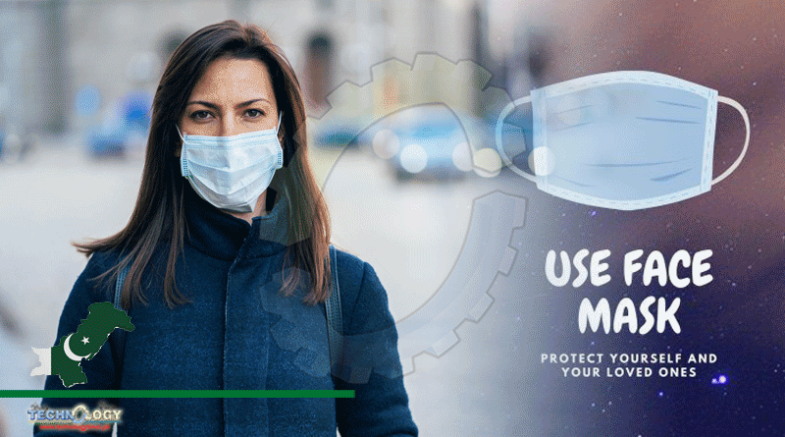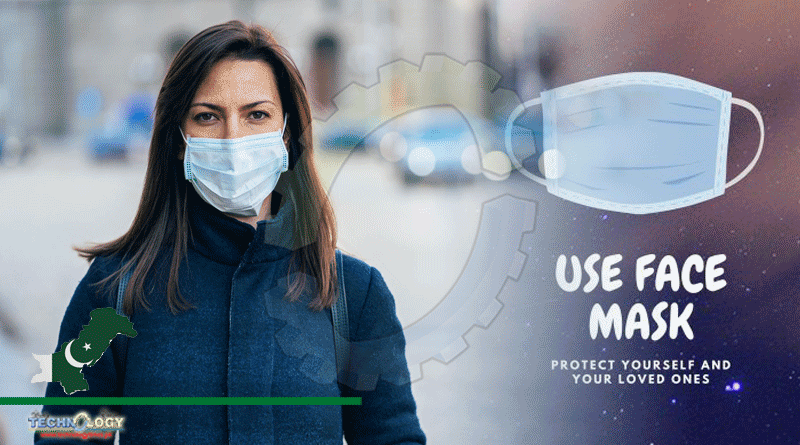Through Educational Interventions Aiming At Safe Health Practices To Help Motivate And Encourage People To Follow Preventive Protocols.

A Recently Conducted Study Highlights The Need For Disseminating Correct Information About Covid-19 Through Educational Interventions Aiming At Safe Health Practices To Help Motivate And Encourage People To Follow Preventive Protocols. Titled Knowledge, attitude and perception of Pakistanis towards Covid-19; a large cross-sectional survey, the study was conducted by a researchers’ team led by Prof Javaid Ahmed Khan at the Aga Khan University Hospital. A total of 1,200 respondents participated in this study; a majority of them were aged from 20 to 29, unmarried and resided in Sindh. More than half of the samples had bachelor’s degrees. A total of 179 participants were students. The greater part of the sample (86.3 per cent) had not contracted the coronavirus. One quarter of the respondents were either smokers or had quit smoking. The study’s findings showed that most of the respondents had adequate knowledge (93.3pc) and good perception (85.6pc) towards Covid-19. ‘During the pandemic several incidents of mass gatherings have been observed, demonstrating poor knowledge of the outbreak’
Significant differences in knowledge and perception, however, were observed among genders, age groups, education and between students and employees in the healthcare and non-healthcare departments. A multivariate analysis revealed a higher educational status and female gender to be significant predictors of adequate knowledge and perception. The majority (70.5pc) of the respondents answered correctly that the coronavirus is transmitted through air droplets and contact. A considerable (89.6pc) part of the survey acknowledged that Covid-19 can lead to pneumonia and respiratory failure and more than three fourths (79.2pc) agreed that supportive care is the current treatment. Moreover, almost the entire population (97.8pc) was aware of preventive measures. Almost all participants knew that washing hands with soap and water can help in the prevention of Covid-19 transmission (98.4pc) and that sick patients should share their recent travel history with healthcare providers. “Overall, 93.3pc of our sample exhibited adequate knowledge of Covid-19. Though, more than half (58.2pc) of the population was following the quarantine regulations imposed by the government ‘to a great extent’ fairly, 36.8pc showed just a ‘neutral’ attitude to the competence of the government of Pakistan in controlling the pandemic.
“Fear levels regarding the infection of Covid-19 varied as 32.8pc were afraid of themselves and their families from getting infected. An optimistic attitude was observed as 67.3pc agreed that Covid-19 will be successfully controlled,” the study says. However, roughly one-third (30.3pc) of the sample was not aware that elderly and chronically ill patients were more likely to be severely affected and nearly a quarter (24.6pc) respondents did not know that flu vaccination is not sufficient for preventing Covid-19. Significant differences in knowledge and perception across both genders as well as among all age groups, education groups and between students and employees in the healthcare and non-healthcare departments were noted. Likewise, a significant difference in knowledge between smokers and non-smokers existed. On multivariate analysis for knowledge, age groups of 30-39 and 50-59 had significantly lower knowledge. Female gender and an education level of minimum bachelor’s were significantly associated with adequate knowledge. Likewise, female gender, a minimum education level of bachelor’s and being employed in the healthcare system was significantly associated with good perception.
Pakistan’s challenges
About the need for the research, the study highlights how the pandemic affected the world, including Pakistan, a country facing multiple public health challenges. “High prevalence and no definite treatment has indeed created unimaginable challenges in the lower middle income countries where extended periods of lockdowns along with the lack of infrastructure, under-resourced healthcare and weak financial governance has led to crippling economies, escalating unemployment rates and an ever increasing burden on healthcare.” Pakistan, it points out, with a limited allotted healthcare budget lacks sufficient medical equipment such as ventilators, hospital gowns and personal protective equipment to combat the ongoing pandemic. Despite strict measures enforced by the government, up until July 17, 2020, a grim total of 260,000 cases with over 5,079 deaths have been reported nationally. The provincial governments enforced a nationwide lockdown during early March which was unfortunately partly opposed by hard-line clerics and religious activists who insisted citizens to continue routine congregational prayers at mosques. During the course of this pandemic, several incidents of mass gatherings have been observed nationally, demonstrating poor knowledge of the outbreak. “The fragmented healthcare system of Pakistan coupled with the uncooperative attitude of the local population and the religious protesters to social distancing measures alongside the overall poor health literacy calls for an urgent strategic plan,” it says.
This news was originally published at Dawn.
